

Summer School on Environmental Remediation & Biogeochemistry
July 8-21 2012 at Nanjing University Xianlin Campus
OVERVIEW
The Summer School on Environmental Remediation & Biogeochemistry is organized by the Ministry of Education and Nanjing University. It aims to provide graduate students and young professionals in environmental science with current knowledge and new development in environmental chemistry, environmental toxicology, microbial ecology, molecular biology, environmental hydrology, and environmental remediation. Participants will learn theses issues through lectures and practical exercises.
The courses will be taught in English by six well-established professors from USA, Canada and China. A certificate of completion will be presented upon successful conclusion of the course.
COURSE TOPICS
Ø Application of soil adsorption and precipitation models for toxic elements in soil remediation and plant bioavailability
Development of soil adsorption and precipitation models for toxic elements. Application of soil adsorption models to soil remediation and plant bio-availability
Ø Application and measurement of contaminant bioavailability in soil remediation and human/ecological risk assessment
Use bioavailability of contaminants for soil assessment and remediation. Bioavailability concepts, measuring bioavailability, soil contaminant chemistry and bioavailability, bioavailability use in human/ecological risk assessment, risk-based bioavailability in situ soil remediation
Ø Bioremediation of environmental pollutants: microbial molecular biology, mechanisms and monitoring
Introductory soil microbiology; genetics, biochemistry, and ecology of PAH degradation; biological degradation of chlorinated solvents; transformation of pollutants in anoxic systems; and current approaches to monitoring biodegradation in the environment.
Ø Principles of aquatic toxicology, and contaminants exposure to aquatic organisms and risk assessments
Basic principles of aquatic toxicology. Factors affecting exposure of aquatic organisms to contaminants and how they affect risk assessments.
Ø Assessment and remedial design for groundwater contaminated with organics
Aquifer and groundwater characteristics, types of groundwater pollutants, principles of groundwater flow, assessment and characterization of contaminated sites, and site remediation design criteria fundamentals. Also, emphasis will be placed on areas of active research, and important current research questions will be identified
PROFESSORS-BRIEF INFORMATION
|
Name/Affiliation |
Specialty |
Research interests |
|
James Jawitz University of Florida |
Environmental hydrology |
Remediation of contaminated groundwater, wetland hydrology, and water quality |
|
Andrew Ogram University of Florida |
Molecular microbial ecology |
Impacts of human activities on microbial community structure and function, and linking with biogeochemical cycling and ecosystem function. |
|
Patrick Wilson University of Florida |
Environmental toxicology |
Fate of pesticides and emerging contaminants in cropping systems and the environment and their impacts on water quality |
|
Nick Basta Ohio State University |
Soil biochemistry |
Risk-based environmental chemistry and bioavailability of contaminants and nutrients in soil with emphasis on human and ecosystem |
|
Les Evans University of Guelph |
Environmental chemistry |
Computer modeling of toxic element retention and bioavailability in soils, sediments and waters |
|
Lena Q Ma Nanjing University |
Environmental biogeochemistry |
Biogeochemistry of contaminants and phytoremediation & chemical remediation of contaminated sites |
PROFESSORS-DETAILED INFORMATION
¡¡
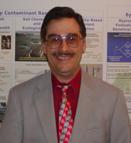 |
Dr. Nick Basta is Professor of Soil and Environmental Chemistry in the School of Environment and Natural Resources at The Ohio State University. His program focuses on risk-based environmental chemistry and bioavailability of contaminants and nutrients in soil with emphasis on human and ecosystems. He has >300 publications with 85 SCI papers. He has delivered >130 invited presentations. He has projects from NSF, U.S. EPA, American Water Works Association, Strategic Environment Research and Development Program and USDA. |
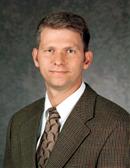 |
Dr. James Jawitz is a professor in Soil and Water Science Department at the University of Florida, USA. His research emphases on remediation of contaminated groundwater, wetland hydrology, and catchment-scale water quality. His work encompasses field experiments, laboratory studies, theoretical developments, and mathematical modeling. Dr. Jawitz developed |
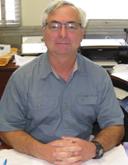 |
Andrew Ogram is Professor of Microbial Ecology in the Soil and Water Science Department of the University of Florida. His research primarily focuses on the impacts of human activities on microbial community structure and function, and linking these impacts with biogeochemical cycling and ecosystem function. Most of the research conducted in his lab concerns the fundamental mechanisms by which nutrient pollution impacts the function of microbial communities in wetlands, particularly with respect to green house gas production and mercury cycling. |
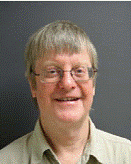 |
Dr Les Evans is Professor Emeritus in Environmental Chemistry in the School of Environmental Sciences, University of Guelph, Ontario, Canada. His research interests are in the area of computer modeling of toxic element retention and bioavailability in soils, sediments and waters. Recent projects involved the development of computer soil adsorption models for As, Ag, Cu, Ni and Sb in mine impacted soils and for P in agricultural soils; and the use of recycled paper biosolids for the removal of Mo and Cr from waste waters. |
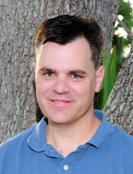 |
Dr. Patrick Wilson is an Associate Professor in the Soil and Water Science Department at the University of Florida. His field of study is environmental toxicology and chemistry. His primary interests include studying the fate of organic pesticides and emerging contaminants in cropping systems and the environment, identifying how land and water management impacts water quality and natural resources, and identifying management opportunities to limit exposure of natural resources and humans to contaminants in order to reduce risks. |
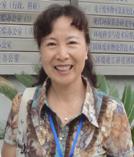 |
Dr. Lena Q. Ma is a professor in the School of the Environment at Nanjing University, China. Her research focuses on 1) biogeochemistry of contaminants in soil-water- plant-microbe ecosystem, and 2) phytoremediation and chemical remediation of contaminated water, soils, and wastes. She is a Fellow of AAAS, ASSS, and ASA. She received the Discovery 2001 Award from the Royal Geographical Society. She has >170 SCI publications with over >5,300 citation and h-index of 39. |
APPLICATION
Enrollment is limited to ~50 participants, which will be selected based on the application form. We encourage you to apply early to ensure your chance to be accepted by the School.
Ø Complete the application form in English using computer (application form), sign e-signature, and email it to Dr. Jun Luo at esluojun@nju.edu.cn by May 25th, 2012.
Ø Accepted applicants will be notified by June 5th, 2012 via e-mail.
Ø For any reason if you cannot attend, please inform us by July 1st, 2012.
SCHEDULE
Ø Students come to Nanjing University on July 8th and leave on July 21st.
Ø Lectures are delivered 3 hours in the morning and 3 hours in the afternoon with breaks, discussions and course exercises.
Ø A day trip around Nanjing will be provided to all attendees.
FEES
Ø Free for graduate students and£¤800 registration fee for post-doc and young professionals.
Ø Free lecture materials will be provided;
Ø Free accommodation and meal at Nanjing University dormitory and cafeteria are provided for all attendees;
SPONSORS
Ø Ministry of Education;
Ø Graduate School, Nanjing University;
Ø State Key Lab of Pollution Control and Resource Reuse, Nanjing University;
Ø School of the Environment, Nanjing University;
Ø The Sino-US Environment Research Centre, Nanjing University;
Ø The Sino-Finnish Environment Research Centre, Nanjing University.
ORGANIZING COMMITTEE
Drs. Lena Qiying Ma, Jun Bi, Xueyuan Gu, and Jun Luo, School of the Environment, Nanjing University
CONTACT INFORMATION.
Ø For questions, please contact Miss. Juan Zhang at 13951681461, 025-89680637, or 1042zhangjuan@163.com